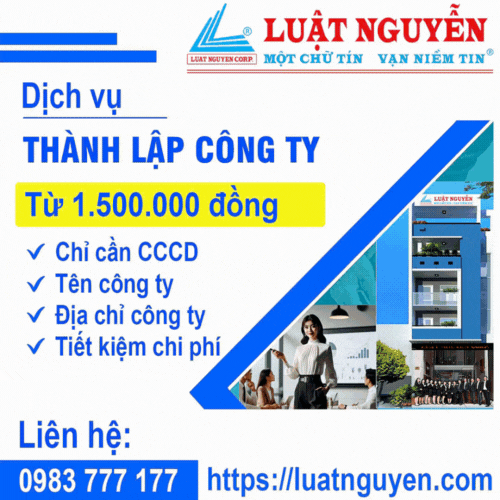Proposal to Abolish Lump-Sum Tax for Household and Individual Businesses
According to the submission, the amended law, consisting of 10 chapters and 54 articles, is designed to accelerate digital transformation in tax administration, making tax compliance more convenient for taxpayers while strengthening state management. One of the most notable changes is the abolition of lump-sum taxation. Instead, household and individual businesses will base their tax obligations on actual annual revenues to determine whether they fall within taxable or non-taxable categories.

Specifically, those classified as non-taxable must still declare their actual revenues to the tax authority in accordance with government regulations. For those subject to taxation, taxpayers will self-determine their tax liability based on revenues, choosing either the deduction method or the direct method on gross revenue.
The draft also introduces new provisions on taxpayer categorization (Article 3), allowing tax authorities to assess risk levels and compliance status, and to apply tailored supervisory and management measures. In addition, a dedicated chapter on risk management and compliance is proposed to minimize overlapping inspections and promote transparency.
A separate chapter on digital transformation in tax administration has also been added. It provides rules on the use of electronic records and services similar to e-invoices, while expanding the responsibilities and authority of tax authorities to fit a modern, automated model. Artificial intelligence applications for early detection of potential tax violations are also incorporated, in line with Resolution 68-NQ/TW.
During the session, council members unanimously agreed on the necessity of enacting the revised law, affirming that its provisions align with international commitments while ensuring constitutionality, national security, and defense. However, members also urged the drafting body to carefully review resource requirements for enforcement and to ensure consistency with other existing legal frameworks.
Concluding the meeting, Deputy Minister Nguyễn Thanh Tú directed the drafting committee to further refine the law, emphasizing the need to reduce administrative procedures and compliance costs for taxpayers without compromising state revenue collection. He also requested the submission of a comprehensive dossier, including a comparative table and clear justifications for amendments, to guarantee transparency and feasibility in implementation.
Ý kiến bạn đọc
Những tin mới hơn
Những tin cũ hơn
Luật sư Trần Đình Phúc: Người thầm lặng kiến tạo nên những giá trị bền vững tại Luật Nguyễn
Trong hành trình hơn 25 năm phát triển của Luật Nguyễn, bên cạnh những bước tiến mạnh mẽ và thành tựu đáng tự hào, không thể không nhắc đến những con người đã đặt nền móng và gắn bó trọn vẹn với sự nghiệp chung. Luật sư Trần Đình Phúc là một trong số ấy. 1. Người đồng hành từ những ngày đầu...
-
 Thông tư 200/2024: Hướng đi đột phá cho Kế toán Việt Nam – Tăng quyền tự chủ, tiệm cận Chuẩn mực Quốc tế
Thông tư 200/2024: Hướng đi đột phá cho Kế toán Việt Nam – Tăng quyền tự chủ, tiệm cận Chuẩn mực Quốc tế
-
 Tăng Gấp Đôi Mức Phạt Vi phạm Liên quan đến Thẻ Căn cước
Tăng Gấp Đôi Mức Phạt Vi phạm Liên quan đến Thẻ Căn cước
-
 Đề xuất Niêm phong Tang vật Vi phạm Hành chính: Hướng dẫn chi tiết Quy trình Bảo quản
Đề xuất Niêm phong Tang vật Vi phạm Hành chính: Hướng dẫn chi tiết Quy trình Bảo quản
-
 Đề xuất tăng ngưỡng kê khai tài sản chống tham nhũng lên 1 tỉ đồng
Đề xuất tăng ngưỡng kê khai tài sản chống tham nhũng lên 1 tỉ đồng
-
 NHNN Quyết Liệt "Ra Tay" Kiểm Soát Thị Trường Đôla "Chợ Đen" Trước Mức Chênh Lệch Kỷ Lục
NHNN Quyết Liệt "Ra Tay" Kiểm Soát Thị Trường Đôla "Chợ Đen" Trước Mức Chênh Lệch Kỷ Lục
- Đang truy cập281
- Hôm nay6,096
- Tháng hiện tại406,029
- Tổng lượt truy cập3,150,147
-
 Cập nhật địa chỉ trụ sở Công an cấp xã tại TPHCM sau sáp nhập
Cập nhật địa chỉ trụ sở Công an cấp xã tại TPHCM sau sáp nhập
-
 Thông tư 40/2021 :Quy định về nghĩa vụ thuế đối với hộ kinh doanh
Thông tư 40/2021 :Quy định về nghĩa vụ thuế đối với hộ kinh doanh
-
 Địa chỉ 19 Tòa án nhân dân (TAND) khu vực TP.HCM sau sáp nhập
Địa chỉ 19 Tòa án nhân dân (TAND) khu vực TP.HCM sau sáp nhập
-
 Hóa đơn GTGT xuất cho khách cá nhân có bắt buộc ghi CCCD?
Hóa đơn GTGT xuất cho khách cá nhân có bắt buộc ghi CCCD?
-
 Ngân 98 và lời khai trong vụ án sản xuất, buôn bán thực phẩm giả
Ngân 98 và lời khai trong vụ án sản xuất, buôn bán thực phẩm giả








